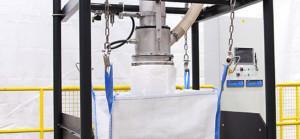Sustainable values and the world’s digitalization have led to increasing demand for batteries globally. The batteries won’t be lead batteries as they used to be for a century. Instead, there are several other metals, like lithium, cobalt, and nickel, which can be found worldwide. The exact metals also exist in the Nordic ground, creating a sound business potential for the local companies to refine them further.
The manufacturing (refining) process of battery raw materials is complex and multiphase. This means that the footprint area of the battery production facility will be relatively large.
Manufacturing cost efficiency demand means that you can’t accept whatever height for the building, so the plant layout will consist of multiple materials lifting stages rather than utilizing a straightforward “gravity flow” idea. This will affect the process and selected dosing equipment, for instance, the increased number of needed parallel equipment.
What are the essential considerations when planning a battery raw material processing?
The manufacturing process includes several process stages, and the materials in different phases can be oxides, hydroxides, some dry loose materials, moist granulate and moist flakes, etc. The physical properties of battery raw materials vary greatly, and some materials are challenging to process. Therefore, different dosing devices are needed, for example, weighing screws, additional rotary and gravimetric feeding, and pneumatic transport systems. These factors place high demands on the chosen technologies and equipment performance, thus, the selection of equipment suppliers.
It is essential to emphasize such dosing systems and the complexity of the required dosing and feeding accuracy, topped with the process system’s dynamic requirements that material handling equipment must comply with. E.g., very well-fluidized bulk materials, coarse granules, and adhesive flakes are problematic and require demanding volumetric feeding properties from the feeding/dosing equipment.
It is good to remember that the battery metal refining process consists mainly of continuous dosing and feeding applications rather than “batch type.” It means that the used dosing equipment needs to fulfill both stable volumetric and accurate gravimetric performance at the same time. This also substantially complicates the process control system software and hardware design.

Dosed, mixed, and otherwise processed battery raw materials, i.e., the “internal end product,” are temporarily stored in big bags or containers. This includes weighing, dosing, and feeding applications, such as big bag filling and unloading equipment and surface measurement systems related to internal materials logistics control and management systems. The exact dosing and weighing systems are therefore used both for the treatment of battery metals and for their further processing at a later stage.
Want to know more? Contact us
Niko Toimela
Vice President, Sales and Marketing
+358 400 775 582
niko.toimela@lahtiprecision.com
Efficiency for battery metals production with mixing solutions
Due to the increased demand for battery metal applications, we have developed our concepts to be able to match the needs to this industry as well.
Solid experience has also been harnessed for the needs of the battery industry
The concept we have designed for the needs of the battery industry emphasizes in particular that valuable materials can be efficiently utilized by automating the handling of big bags.
Our comprehensive concept solution brings significant benefits to the battery industry
Learn more about the facility solutionDownload the guide to battery industry’s weighing and dosing solutions
In this guide, we tell you about the factors to consider when choosing weighing or dosing solutions for the battery industry.
Read more